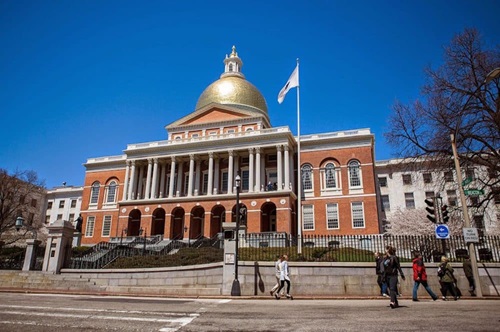‘Junk fees’ unfairly rob consumers.
New Massachusetts’ regulations banning them go into effect today.
No more hidden charges: The price you see will be the price you pay

IT’S MOVE-IN season in Massachusetts, and you may have just seen an ad for a studio apartment for $2,500 per month. That amount is going to stretch your budget, but recognizing how competitive the housing market is, you know you need to jump on that rental quickly.
So, you head to the management office the very next day to sign your lease. Just before signing, you notice the amount you’d have to pay every month will actually be $2,750 – beyond what you have budgeted for rent. The extra $250 comes from a mandatory “trash pick-up” fee combined with a vague “amenities” fee. You don’t want to start the daunting apartment search process over again, so you sign the lease. But the entire process leaves you feeling misled and paying more than you originally anticipated.
We hear these stories often. If it’s not apartment fees tacked on at the last minute, it’s “resort fees” at a hotel, “convenience fees” when you purchase a ticket, or “processing fees” when checking out online.
These fees are not simply an inconvenience – they’re a widespread, costly problem impacting all of us. Every year, Americans spend tens of billions of dollars on hidden or surprise “junk fees” that deceptively raise costs beyond advertised prices. As consumers face rising costs of living, these pesky fees quietly drain consumers’ wallets.
This is why, as attorney general, I’ve used my authority to enact nation-leading, economy-wide consumer protection regulations making it clear that “junk fees” are prohibited under Massachusetts law.
Effective today – these regulations are for every person who’s had their budgeting blown apart by last-minute “surprises,” for every parent who’s had to explain to their child why the gift they promised is now out of their price range, and so many more.
Amidst an ongoing affordability crisis, these new rules will require businesses to disclose the full price of their goods and services upfront. No more misleading price advertising. No more burying fees at the end of a transaction.
These regulations go beyond just requiring upfront pricing for one-off purchases. They’ll also help consumers more easily cancel or avoid unwanted costs related to trial offers, automatic renewals, and subscriptions – like gym memberships and meal delivery services.
They’ll make it so that a 7-day free trial for an online streaming service won’t quietly turn into $150 in monthly charges without notice. They’ll ensure that you’re able to cancel that unwanted subscription the same way you signed up for it – online, not by mail.
The regulations will also help level the playing field for businesses by allowing potential customers to more accurately compare prices while shopping.
That way, the next time you go shopping in Massachusetts, you’ll know exactly how much something costs, excluding taxes and shipping charges, before you decide to check-out. And no business will be allowed to hide those fees until the last moment before purchase.
Massachusetts has long been on the forefront of consumer protection, having some of the strongest laws in the country. And my office’s “junk fee” regulations are just one way we’ve built upon that legacy.
Unlike many other state or federal counterparts, our “junk fee” regulations will apply broadly across industries and businesses operating in Massachusetts – making them stronger, bolder, and truly nation-leading.
As the current federal administration steps back from consumer protection – as evidenced by its efforts to dismantle one of the nation’s chief financial watchdogs, the Consumer Financial Protection Bureau – we have and will continue to step up.
If you believe you’ve experienced an unfair or deceptive “junk fee,” you may file a consumer complaint with my office online at mass.gov/ago. And more information regarding our “junk fee” regulations, including guidance to help businesses comply with the new rules, is available online at mass.gov/ago/junkfees.

Today, we turn the page on “junk fees” and deceptive costs. Today, the price you see is the price you pay.
Andrea Joy Campbell is attorney general of Massachusetts.
CommonWealth Voices is sponsored by The Boston Foundation
